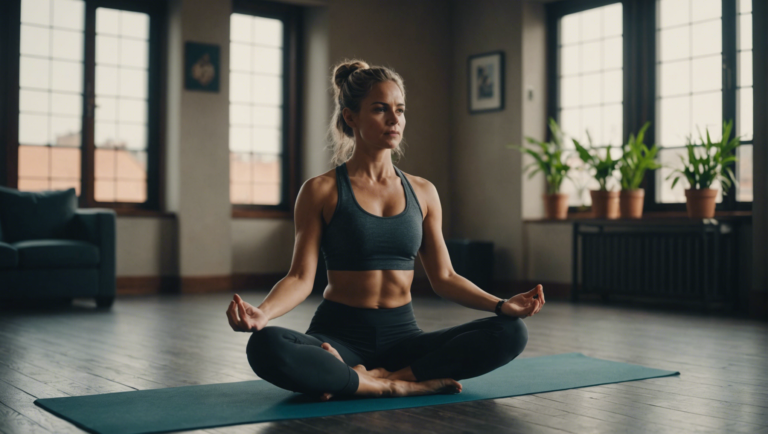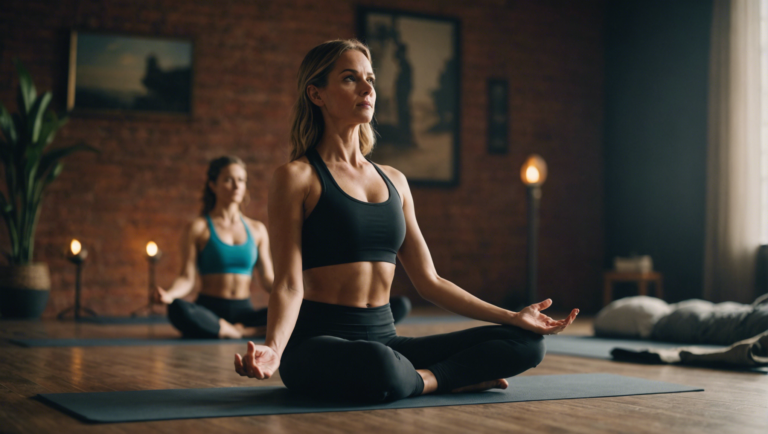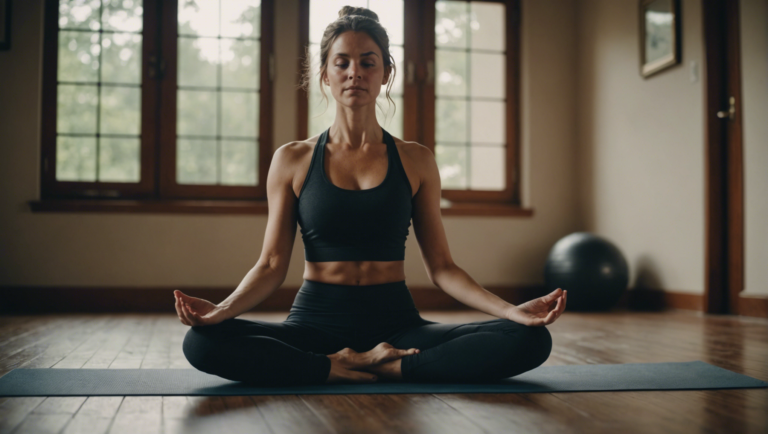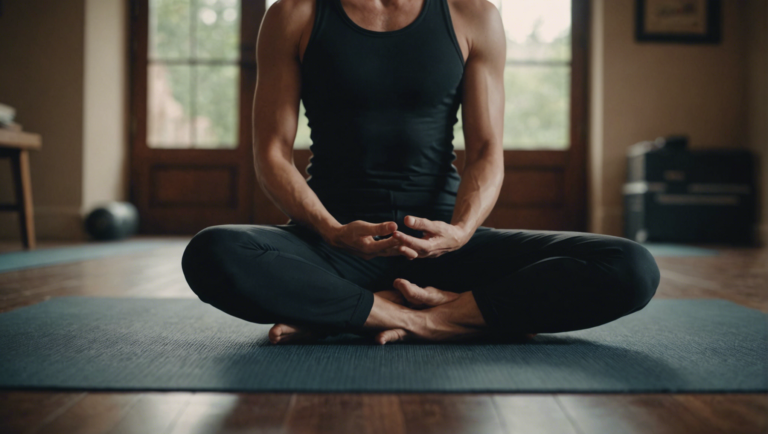Guidelines On The Duration Required To Learn Yoga: How Long Does It Take?
Factors Affecting the Duration Required to Learn Yoga
Yoga is a practice that offers numerous physical, mental, and emotional benefits. Many individuals embark on a journey to learn and master yoga to enhance their overall well-being. However, the duration required to learn yoga can vary significantly from person to person. Several key factors influence how long it takes for individuals to become proficient in yoga practice.
Personal Commitment and Consistency
One of the primary factors that determine the duration required to learn yoga is the individual’s level of personal commitment and consistency. Like any skill or discipline, practicing yoga regularly is essential to progress and improvement. Dedication to daily practice, attending classes, and following a structured routine can significantly impact how quickly one advances in yoga.
Current Fitness Level and Flexibility
Another crucial factor that influences the duration needed to learn yoga is an individual’s current fitness level and flexibility. Beginners with lower fitness levels or limited flexibility may find it takes longer to master certain yoga poses and sequences compared to those who are already physically active or flexible. Consistent practice can help improve overall fitness and flexibility over time, leading to faster progression in yoga practice.
Type of Yoga Practice
The type of yoga practice one chooses to pursue can also impact the time it takes to learn yoga. There are various styles and disciplines of yoga, ranging from gentle and restorative practices to more vigorous and challenging forms. Some styles may be easier for beginners to grasp, while others require more time and dedication to master. Understanding the different types of yoga and finding one that aligns with personal preferences and goals can influence the learning process.
Guidance and Instruction
The quality of guidance and instruction received can significantly affect how long it takes to learn yoga. Attending classes led by experienced and knowledgeable yoga instructors can provide valuable insight, corrections, and feedback to help students progress efficiently. Personalized instruction and feedback can address individual needs, ensuring proper alignment and technique, which are essential for mastering yoga poses.
Mindset and Patience
Developing the right mindset and cultivating patience are crucial factors in the journey to learn yoga. Yoga is not just about physical postures but also about mental focus, breath awareness, and inner exploration. Having a patient and open-minded approach to practice, embracing challenges, and learning from setbacks are essential elements in advancing in yoga practice. Cultivating a positive and patient attitude can positively impact the learning process and overall progress in yoga.
The duration required to learn yoga is influenced by various factors, including personal commitment, fitness level, type of practice, guidance received, and mindset. By recognizing these factors and approaching the practice of yoga with dedication, consistency, and patience, individuals can enhance their learning experience and progress more effectively. Ultimately, the journey to learn yoga is a personal and transformative one that unfolds at its own pace, guided by individual effort and determination.
Setting Realistic Expectations for Progress in Yoga Practice
Practicing yoga is a deeply personal journey that varies greatly from person to person. It is essential to set realistic expectations for progress in your yoga practice to avoid frustration and burnout. Understanding the time and effort required can help you stay committed and motivated on your yogic path.
Understanding the Nature of Progress in Yoga
Progress in yoga is not solely measured by physical abilities like flexibility or strength. While these aspects certainly improve with consistent practice, progress in yoga is also about mental and emotional growth. It involves cultivating mindfulness, self-awareness, and inner peace. Therefore, progress in yoga is holistic, encompassing all aspects of your being.
Factors Affecting Progress
Several factors can influence how quickly you progress in your yoga practice. These include:
- Consistency: Regular practice is key to making progress in yoga. Practicing a little every day is more beneficial than sporadic intense sessions.
- Intensity: The intensity of your practice can also impact progress. Consistent but moderate practice is often more sustainable and yields better results than occasional intense sessions.
- Mindset: Approaching your practice with an open mind, patience, and self-compassion can accelerate your progress in yoga.
- Physical Condition: Your current physical condition, including any injuries or limitations, can affect how quickly you progress. It’s essential to listen to your body and modify your practice as needed.
Setting Realistic Expectations
It’s important to understand that progress in yoga is not linear. Some days you may feel strong and flexible, while other days you may struggle with certain poses. It’s all part of the journey. Here are some tips for setting realistic expectations in your yoga practice:
- Focus on the Journey: Instead of fixating on end goals, such as mastering a challenging pose, focus on enjoying the process of practicing yoga.
- Celebrate Small Wins: Acknowledge and celebrate small achievements, such as holding a pose a little longer or noticing increased mindfulness during practice.
- Be Patient with Yourself: Rome wasn’t built in a day, and neither is a strong yoga practice. Be patient and trust that progress will come with time and dedication.
- Listen to Your Body: Respect your body’s limits and avoid pushing yourself too hard. Yoga is about self-care and self-compassion.
Time Frame for Progress
The time required to see significant progress in your yoga practice varies widely among individuals. Some people may experience noticeable changes in a few weeks, while others may take months or even years to achieve certain milestones. It’s crucial to remember that yoga is a lifelong journey, and there is no set timeline for progress. What matters most is your commitment to the practice and your willingness to grow and evolve along the way.
Setting realistic expectations for progress in your yoga practice is essential for maintaining motivation and enjoyment. Embrace the ups and downs of your yoga journey, celebrate small victories, and trust in the process. With dedication, consistency, and patience, you will undoubtedly experience growth and transformation in your yoga practice.
Strategies to Enhance Learning Speed and Efficiency in Yoga
To enhance learning speed and efficiency in yoga, individuals can implement various strategies that not only accelerate the learning process but also help in mastering different yoga practices effectively. By incorporating these strategies into their routine, practitioners can experience progress and improvements in their yoga journey.
Understanding Personal Goals and Objectives
Before delving into the practice of yoga, it is essential for individuals to identify their personal goals and objectives. Whether the aim is to improve flexibility, reduce stress, or enhance overall well-being, having a clear understanding of what one hopes to achieve through yoga can provide direction and motivation throughout the learning process.
Consistent Practice and Dedication
Consistency is key when it comes to learning yoga efficiently. Regular practice, even if it is for a short duration each day, can yield better results compared to sporadic and intense sessions. By dedicating time each day to practice yoga, individuals can build a routine that not only enhances their skills but also fosters discipline and commitment.
Focus on Proper Technique and Alignment
Learning the correct techniques and alignment in each yoga pose is crucial for maximizing the benefits and preventing injuries. Paying attention to the guidance of experienced instructors, using props when necessary, and practicing mindfulness during each movement can significantly improve the efficiency of learning yoga.
Utilizing Online Resources and Tools
In today’s digital age, there is a wealth of online resources available for individuals looking to enhance their yoga practice. From instructional videos to virtual classes, leveraging online platforms can provide additional support and guidance to supplement regular yoga sessions. These resources can offer insights, tips, and demonstrations that contribute to a more comprehensive learning experience.
Seeking Guidance from Experienced Instructors
While self-practice is beneficial, seeking guidance from experienced yoga instructors can elevate one’s practice to new heights. Instructors can offer personalized feedback, corrections, and modifications tailored to individual needs, facilitating faster progress and a deeper understanding of yoga principles.
Breathwork and Meditation
Yoga is not just about physical postures; it also encompasses breathwork and meditation practices. By incorporating pranayama (breathwork) and mindfulness meditation into their routine, individuals can enhance their focus, reduce stress, and cultivate a sense of inner peace that complements their yoga practice.
Practicing Gratitude and Patience
Learning yoga is a journey that requires patience, perseverance, and a positive mindset. Practicing gratitude for the progress made, no matter how small, and having patience with oneself throughout the learning process can foster a sense of acceptance and self-awareness that enhances the overall yoga experience.
By implementing these strategies, individuals can enhance their learning speed and efficiency in yoga, ultimately reaping the holistic benefits that this ancient practice has to offer. Yoga is not just a physical exercise but a transformative journey that unfolds gradually, offering profound insights into one’s body, mind, and spirit.
The Role of Consistency and Dedication in Mastering Yoga Techniques
Consistency and dedication play crucial roles in mastering yoga techniques. While many people may wonder how long it takes to learn yoga effectively, the journey to proficiency heavily depends on individual commitment and effort. Let’s delve into the significance of these two elements in the pursuit of mastering yoga.
Understanding the Importance of Consistency
Consistency in practicing yoga is vital for progress and improvement. Just like any other skill or discipline, regular practice is key to enhancing proficiency in yoga. Consistent practice helps in ingraining the techniques, poses, and breathing exercises into muscle memory, making them easier to perform over time.
By committing to a regular yoga practice schedule, individuals can experience incremental improvements in their flexibility, strength, and overall well-being. Consistency also allows practitioners to delve deeper into the mental and spiritual aspects of yoga, such as mindfulness and relaxation. Through consistent practice, individuals can cultivate a sense of discipline and focus that extends beyond the yoga mat into their daily lives.
The Significance of Dedication in Yoga Mastery
Dedication goes hand in hand with consistency and is essential for mastering yoga techniques. Dedication involves not only showing up for practice regularly but also approaching each session with mindfulness and intention. It requires a willingness to push past limitations, explore new possibilities, and embrace the journey of self-discovery that yoga offers.
Dedicated practitioners often find that yoga becomes more than just a physical exercise routine; it becomes a way of life. Through dedication, individuals can deepen their understanding of the mind-body connection, unlock hidden potential, and cultivate a sense of inner peace and harmony.
The Role of Patience and Perseverance
In addition to consistency and dedication, patience and perseverance are equally important on the path to mastering yoga techniques. Progress in yoga may not always be linear, and practitioners may encounter challenges and setbacks along the way. It is essential to approach these obstacles with patience, knowing that growth takes time and effort.
Perseverance is the quality that enables individuals to keep going despite difficulties or obstacles. It is the willingness to face adversity, learn from mistakes, and continue moving forward on the journey to mastery. By embodying patience and perseverance, practitioners can navigate the ups and downs of their yoga practice with resilience and determination.
Embracing the Journey of Self-Discovery
Ultimately, mastering yoga techniques is not just about achieving physical prowess or flexibility; it is about embarking on a journey of self-discovery and personal growth. Consistency, dedication, patience, and perseverance are all integral parts of this transformative journey. By embracing these qualities and committing to regular practice, individuals can unlock the full potential of yoga and experience its profound benefits on their body, mind, and spirit.
Understanding Different Learning Paces in Yoga Practice
Understanding Different Learning Paces in Yoga Practice: Exploring the Varied Timelines for Mastery
Yoga is a transformative practice that not only focuses on physical well-being but also integrates mental and spiritual growth. When embarking on a yoga journey, it is common to wonder about the duration required to learn and master this ancient art form. However, it is essential to understand that the timeline for learning yoga can vary significantly from person to person due to several factors.
Factors Influencing Learning Pace in Yoga
Several elements come into play when determining how long it may take an individual to learn yoga. These factors can affect the speed at which one progresses in their practice and ultimately achieves mastery.
1. Previous Experience
One of the most critical factors that influence the learning pace in yoga is the individual’s prior experience with the practice. Those who have some background in yoga, whether through informal practice or structured classes, may pick up new concepts more quickly compared to absolute beginners.
2. Frequency of Practice
Consistency is key when it comes to mastering yoga. The more frequently someone practices, the faster they are likely to progress. Regular practice not only improves physical flexibility and strength but also enhances mental focus and spiritual awareness.
3. Body Type and Flexibility
Body type and natural flexibility play a significant role in one’s journey with yoga. Those with more flexibility may find certain poses easier to master, whereas individuals with limited flexibility may require more time and practice to achieve the same poses.
4. Commitment to Learning
The level of commitment a person brings to their yoga practice can also impact how quickly they progress. Those who are dedicated, focused, and eager to learn are likely to see improvements at a faster rate compared to those who approach yoga casually.
Duration Required to Learn Yoga
It is challenging to provide a one-size-fits-all answer to the question of how long it takes to learn yoga due to the individualized nature of the practice. Some people may start experiencing the benefits of yoga, such as increased flexibility and stress relief, within a few weeks of consistent practice. However, true mastery of yoga, which involves a deep understanding of its philosophy and advanced physical postures, can take years to achieve.
Embracing the Journey
Regardless of the timeline, it is essential to remember that yoga is a lifelong journey of self-discovery and growth. Instead of focusing solely on the destination of mastering yoga, it is crucial to enjoy the process, celebrate small victories along the way, and stay committed to continuous learning and self-improvement.
The duration required to learn yoga varies for each individual and is influenced by factors such as previous experience, consistency of practice, body type, and commitment level. By understanding and embracing these variables, practitioners can navigate their unique yoga journey with patience, dedication, and a deep sense of mindfulness.
Conclusion
The duration required to learn yoga is influenced by various factors that can differ from person to person. Understanding these factors can help individuals set realistic expectations for their progress in yoga practice. By acknowledging that progress in yoga is a personal journey that requires time and dedication, individuals can approach their practice with patience and a growth mindset.
Setting realistic expectations for progress in yoga practice involves recognizing that everyone learns at their own pace. It’s important not to compare oneself to others and instead focus on personal growth and development. By embracing the journey and celebrating small achievements along the way, individuals can stay motivated and committed to their yoga practice.
To enhance learning speed and efficiency in yoga, individuals can incorporate strategies such as setting specific goals, seeking guidance from experienced instructors, and practicing regularly. By breaking down complex poses into smaller, manageable steps and focusing on proper alignment and breathing techniques, individuals can improve their skills and progress in their practice.
Consistency and dedication play a crucial role in mastering yoga techniques. By establishing a regular practice routine and making yoga a priority in one’s daily schedule, individuals can cultivate discipline and focus. Consistent practice not only helps improve physical abilities but also enhances mental clarity, emotional well-being, and overall mindfulness.
Understanding that different individuals have varying learning paces in yoga practice is essential. Some may progress quickly, while others may require more time and effort to master certain poses or techniques. It’s important to respect and honor one’s unique journey in yoga, without rushing or feeling discouraged by perceived lack of progress.
In essence, the duration required to learn yoga is a personal and individualized experience. By considering the factors that influence one’s learning pace, setting realistic expectations, implementing effective learning strategies, staying consistent and dedicated, and respecting different learning speeds, individuals can embark on a fulfilling and enriching journey of self-discovery through the practice of yoga. Remember, yoga is not just about achieving specific poses or milestones but about the transformation and growth that occurs along the way. Embrace the process, enjoy the journey, and allow yourself the time and space to fully immerse in the practice of yoga.



